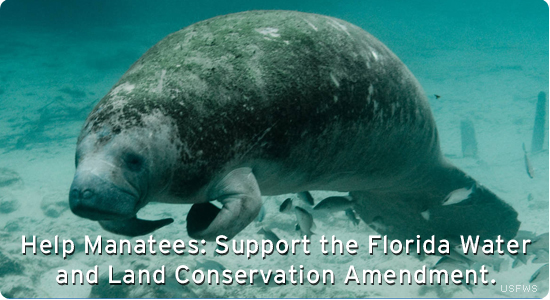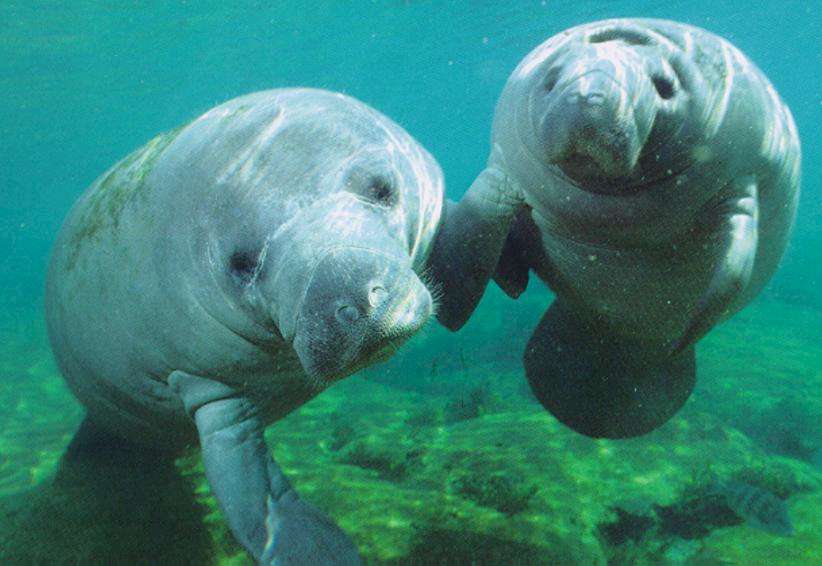
Manatees or sea cows as they are often called, are large, rotund marine animals that can weigh as much as 1,000 pounds. But despite their enormous size, the mostly herbivorous animals have no blubber to protect them in cold weather. Hence, every winter, the gentle giants seek out warmer waters. For the approximately 6,000 Florida manatees that reside in the Gulf of Mexico it means heading to the balmy 72°F waters of the roughly one-acre Three Sisters Spring in Florida's Crystal River National Wildlife Refuge.
However, migrating to the area is not without risks. Every year, recreational boats kill an estimated 400 manatees as they are making their way to the refuge. Those that do make it encounter a different kind of danger — loving humans! Expert believe that the hundreds of thousands of tourists that flock to the small area to touch and feel the manatees are stressing out the marine mammals who share a common ancestor with elephants.

They maintain that the animals seek the warm waters as a place to rest and conserve energy. But with so many people crowding around them that is not possible. Jeff Ruch, Executive Director of Public Employees for Environmental Responsibility, says that touching was initially sanctioned to educate people about the animals whose numbers had been rapidly dwindling. However, that was before the city of Crystal Springs began attracting big crowds by touting itself as the only place where people can swim and play with manatees.
The easiest solution is to ban swimmers from getting close to the animals. Unfortunately that is not possible. That's because the visitors are a significant source of revenue for the region, bringing in as much as $30 million USD annually. Additionally, many locals do not believe that human attention stresses the animals. In fact, some argue that since the number of manatees has increased substantially since they were placed on the endangered species list, they should no longer be protected.

The dispute between the conservationists and locals has been going on for some time now. However, it is only recently that the Florida Fish and Wildlife officials decided to impose stricter measures to protect the mammals. In August 2015, they limited the number of swimmers in the Three Sisters Spring to 29 at a time. Shortly after, that number was reduced to just 13. In November, they unveiled a plan that proposed hiring additional staff members to monitor errant tourists and increase the number of land-based viewing exhibits. Whether locals who are afraid of losing their livelihood will accept these changes remains to be seen. However, conservationists are sure hoping they do so that humans and manatees can coexist happily!
Resources: treehugger.com, news.yahoo.com, npr.com. photos keywestaquarium.com.